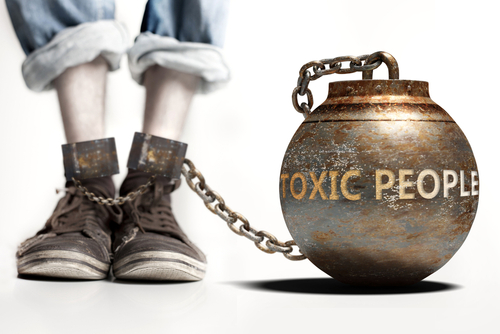Medical News Today explains that “an attachment disorder is a type of mood or behavioral disorder that affects a person’s ability to form and maintain relationships.” The Diagnostic and Statistical Manual of Mental Disorders, Fifth Edition (DSM-5) recognizes two distinct attachment disorders: disinhibited social engagement disorder (DSED) and reactive attachment disorder (RAD). DSED is characterized by “grossly abnormal social behavior, occurring in the context of a history of grossly inadequate childcare (e.g., severe neglect, institutional deprivation).” RAD is characterized by “markedly disturbed and developmentally inappropriate ways of relating socially in most contexts.” Both types of attachment disorders are diagnosed in children between the ages of 9 months and 5 years old. While there is currently no formal diagnosis for attachment disorder in adults, adults can experience attachment issues in adulthood. When this occurs, it is typically due to lingering symptoms of undiagnosed DSED or RAD.
Signs and Symptoms
There are a variety of signs and symptoms that could present in an adult with an untreated attachment disorder. Although DSED and RAD are both housed under the larger umbrella of attachment disorder, each has distinct signs and symptoms, some of which include the following examples, provided by Medical News Today:
- Adult symptoms of DSED
- A lack of awareness of social boundaries
- Hyperactivity
- An extreme trust of people that they do not know well
- A tendency to ask intrusive questions to people that they have just met
- Other behaviors that show a lack of inhibition
- Adult symptoms of RAD
- Resistance to affection
- Difficulty showing affection
- Difficulty reading emotions
- A negative self-image
- Low levels of trust
- Difficulty maintaining relationships
- Impulsivity
- Anger issues
- Detachment
The symptoms can present in any combination with varying levels of severity. Attachment disorders rarely develop in people over the age of five, though without treatment its symptoms can persist indefinitely.
Treatment
The treatment for an adult experiencing a manifestation of childhood attachment disorders often involves psychotherapy. There are many treatment options available in Southern California for an adult struggling with lingering symptoms associated with attachment disorders. Every person is different, and each will benefit most from a customized treatment plan to ensure all nuanced needs are met. Different types of psychotherapeutic modalities that could be incorporated into one’s treatment plan could include but are not limited to, individual psychotherapy, family therapy, attachment-based therapy, couples counseling, cognitive behavioral therapy (CBT), expressive arts therapy, and dialectical behavior therapy (DBT). Depending on the needs of the individual focusing on improving one’s daily habits (e.g., practicing mindfulness techniques, exercising regularly, developing healthy sleeping habits, eating nutritiously, etc.) could also be integrated into one’s treatment plan to further improve one’s overall health and wellbeing. It is important to note that every person is unique and will respond distinctly to various treatment options available.
Disclaimer:
The information above is provided for the use of informational purposes only. The above content is not to be substituted for professional advice, diagnosis, or treatment, as in no way is it intended as an attempt to practice medicine, give specific medical advice, including, without limitation, advice concerning the topic of mental health. As such, please do not use any material provided above as a means to disregard professional advice or delay seeking treatment.


